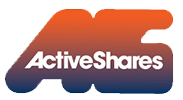The SEC’s Division of Corporation Finance recently posted new compliance and disclosure interpretations concluding that any registered broker-dealer acting as an authorized participant (AP) for any ActiveShares exchange-traded fund (ETF) may rely on the Commission’s disaggregation guidance to separately report ownership of securities acquired in a confidential brokerage account (Confidential Account) with a nonaffiliated brokerage firm (AP Representative), for the benefit of the AP.
Pursuant to the ActiveShares exemptive order issued by the Commission, to protect the identity and weighting of the securities and cash components of an ActiveShares ETF, the creation and redemption processes for each ActiveShares ETF require that an AP effect creation and redemption transactions through a Confidential Account with an AP Representative. Because the AP would not know which securities would be purchased on their behalf through the Confidential Account, several broker-dealers expressed concern that they could not meet their ownership reporting obligations under Section 13(d) and 16(a) of the Securities and Exchange Act of 1934 and could be exposed to short-swing liability under Section 16(b) thereunder.
Previous Guidance
Although the Commission had longstanding guidance on disaggregated reporting, that guidance all predated the existence of ActiveShares ETFs. For example, in a 2001 Goldman Sachs Group interpretive letter, the staff confirmed that disaggregated reporting is appropriate for Section 13(d) and Section 16 beneficial ownership reporting if appropriate informational barriers and other policies are in place. The Goldman Sachs letter also addressed attribution of pecuniary interest across disaggregated business units. The Commission expressed the view that the disaggregation analysis should apply to the determination of pecuniary interest under Rule 16a-1(a)(2) in the same manner and to the same extent it applies to the determination of beneficial ownership under Rule 16a-1(a)(1).
The interpretive letter contained the caveat that if the broker-dealer was a Section 16 insider by virtue of having board representation and the designated director was a member of the board of directors of the broker-dealer firm’s parent holding company, all the disaggregated business units would be deemed to be Section 16 insiders, since the director represents all business units. This issue created a concern for a number of broker-dealer firms interested in acting as APs for ActiveShares ETFs.
2022 Guidance
On October 7, 2022, the Division of Corporation Finance staff addressed the reporting issues in CDI Nos. 105.07 and 109.02, concluding that an AP may rely on the Commission’s disaggregation guidance to separately report ownership of securities acquired in the Confidential Account.
The staff also addressed the pecuniary interest and Section 16(b) liability issues in CDI No. 209.06. The staff agreed that, notwithstanding the representation on a board of directors of an issuer of a security in the creation or redemption basket, the AP would avoid being deemed to have a pecuniary interest in that security if the ETF substitutes cash for that basket security, so that neither the AP, nor anyone transacting on the AP’s behalf, would purchase, receive, or sell the security.
This confirmation that a person does not need to report beneficial ownership over securities in accounts that the person does not have current information on, or control over which securities will be acquired or sold for the account, should remove a barrier that has kept several broker-dealers from acting as APs for ActiveShares ETFs. Any increase in the number of eligible APs can only increase the efficiency of the market for ActiveShares ETFs.
Published: December 16th 2022
Article originally posted at https://www.morganlewis.com/blogs/finreg/2022/12/sec-staff-clarifies-position-on-disaggregation-for-section-13d-and-16a-reporting-by-certain-etf-authorized-participants

